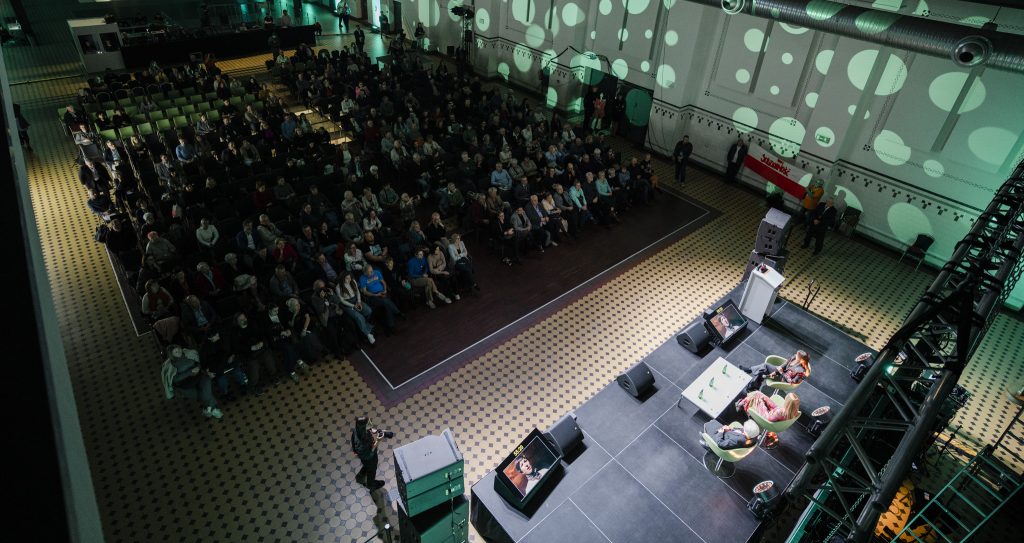The Economic Freedom Foundation has supported the Freedom Games for several years. At this year’s edition, at the EFF stand, participants were able to share their reflections on capitalism. We contrasted them with the content of Capitalist Manifesto by Johan Norberg.
Among those who took part in our survey, positive associations predominated: capitalism means poverty reduction, efficient accumulation of resources, and freedom. We can find confirmation of these observations in Johan Norberg’s book.
Does Capitalism Reduce Poverty?
There is a belief among some that capitalism only fuels the growth of poverty. In his book, Johan Norberg frequently refers to the economic transformation that has taken place in many countries and points out that “contrary to the World Bank’s claims but according to its own data, seemed to have decreased from 38 to 29 percent in the 1990s.” Interestingly, the situation is improving all the time, as the poverty rate fell “from 29.1 percent of the world’s population to 8.4 percent” between 2000 and 2022.
Norberg devotes considerable attention to examining the relationship between the degree of freedom of an economic system and the wealth of a society. Comparing the 25 percent of countries with the most liberal economic systems with the 25 percent of countries with the least liberal approach, it can be seen that GDP per capita in countries with greater economic freedom is more than seven times higher, while extreme poverty, in countries with more restrictive economic rules, is sixteen times higher.
Efficient Use of Resources
Norberg argues that economic liberalization forces participants in many activities to consider not just the appropriate distribution and utilization of resources, but also their appropriate accumulation. As prosperity increases, less and less of our consumption is about material goods and more and more about services, such as care, entertainment, education, research, or design. This is because “the automation of manufacturing means that we can devote a shrinking share of our purchasing power to its products.” Thanks to this phenomenon, more and more attention has begun to be paid to human resources.
As a result of the liberalization of economies, as well as democratization, workers’ rights have started to be taken care of and their work is more valued. It is also often argued that, as a result of the automation of the production process, there will be fewer and fewer jobs and it will be more and more difficult to find one’s way in the labor market, especially for those who were predominantly engaged in manual work. Johan Norberg argues to the contrary.
“Instead, automation creates complementary industries and frees up purchasing power to hire more people. Current research shows that an increase in automation in a factory by 1 percent actually increases the workforce there by 0.25 percent after two years and 0.4 percent after ten years.”
How Do We Create Reality?
One person attending the Freedom Games wrote: “Capitalism is my reality”. This seemingly obvious statement aptly reflects the essence of capitalism, in which the individual shapes his or her own reality. It can be applied to different spheres of life, in particular finding oneself in the labor market.
Johan Norberg notes that “the free market was the sort of economy that followed when people were given the right to shape their relationships and collaborations and to exit them if they became exploitative.” Although it is not perfect and instances of exploitation, bullying and other inappropriate behavior towards workers do occur, workers’ capabilities are increasing thanks to capitalism. One can also observe the increasing proficiency of the young, who, thanks to the diverse range of universities, both public and private, have the opportunity to train for their chosen profession or create jobs themselves.
The basis of capitalism is the principle of reciprocity, which Norberg interweaves through “The Capitalist Manifesto”. Opponents of the free economy claim that the system works against the consumer or worker because it only favors the profit of the rich. This is not true because, as the author of the “Manifesto” points out, capitalism is “the only system that meant that, if you were to earn anything, you had to serve others and give them the goods, services, and rewards they wanted.”



